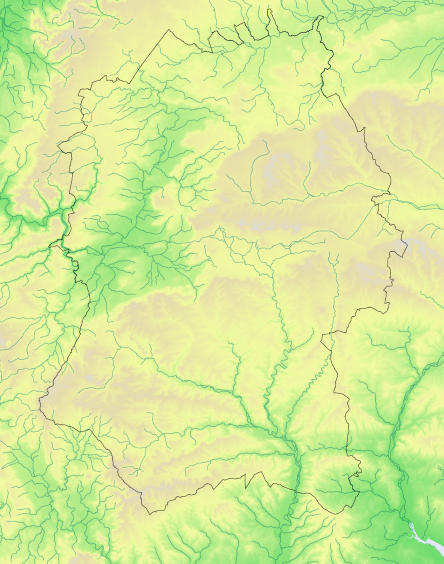Marsh Tit Poecile palustris
Winter distribution 1995–2000
Uncommon and decreasing resident
Atlas species lists
- Breeding distribution 1995–2000
- Summer abundance 1995–2000
- Winter distribution 1995–2000
- Winter abundance 1995–2000
- Breeding distribution 2007–2012
- Summer abundance 2007–2012
- Winter distribution 2007–2012
- Winter abundance 2007–2012
- Breeding distribution change
- Summer abundance change
- Winter distribution change
- Winter abundance change
More Marsh Tit maps
- Breeding distribution 1995–2000
- Summer abundance 1995–2000
- Winter distribution 1995–2000
- Winter abundance 1995–2000
- Breeding distribution 2007–2012
- Summer abundance 2007–2012
- Winter distribution 2007–2012
- Winter abundance 2007–2012
- Breeding distribution change
- Summer abundance change
- Winter distribution change
- Winter abundance change
More maps for this atlas
Map explanation
This map shows the winter distribution of the species in Wiltshire as revealed by the fieldwork for Birds of Wiltshire (Wiltshire Ornithological Society 2007).
Key
Status
Nos tetrads

Present
95
21%

Not surveyed
Marsh Tits are found in two distinct populations. The European population occupies an area from northern Spain, Italy and the Balkans, north to Great Britain (but not to Ireland) and southern Scandinavia, east into central Russia and south to the Caucasus. The Asian population inhabits an area from the Russian Altai in the west, through southern Siberia to Sakhalin and northern Japan, and south to northern and western China.
In Britain they are absent from all of Scotland except for a few areas along the southern borders.They are widespread in England and Wales, though with significant gaps in much of northwest England, northwest Wales, the north Midlands and the Fens up to the Humber estuary. Bird Atlas 2007-11 recorded a 22% range reduction in the breeding season distribution since the 1968-72 Breeding Atlas but only a 4% reduction in the winter range since the 1981-84 Winter Atlas. National survey figures indicate a reduction in numbers by around two-thirds between the 1960s and the end of the century, though the rate of decline had slowed in the latter part of this period.
In Wiltshire, because Marsh Tits and Willow Tits were lumped together until the end of the 19th century, it is impossible to determine the status of either species before 1900. 20th century records are far from unanimous about how common Marsh Tits were, varying from "the commonest of the tits" in 1931 to "uncommon" in 1959 to "common...but rather scarce on high ground" in 1981. Birds of Wiltshire recorded them in 284 tetrads, with breeding confirmed or probable in 123. They were absent from treeless upland areas and from the main urban areas, but otherwise generally scattered around the county. By the time of WTA2 their breeding season distribution had thinned out so that they were only found in 229 tetrads, with breeding in 107.
References
The following references are used throughout these species accounts, in the abbreviated form given in quotation marks:
“1968-72 Breeding Atlas” – Sharrack, J.T.R. 1976: The Atlas of Breeding Birds in Britain and Ireland. T. & A. Poyser
“1981-84 Winter Atlas” – Lack, P.C. 1986: The Atlas of Wintering Birds in Britain and Ireland. T. & A. Poyser
“1988-91 Breeding Atlas” – Gibbons, D.W., Reid, J.B. & Chapman, R.A. 1993: The New Atlas of Breeding Birds in Britain and Ireland 1988-91. T. & A. Poyser
“Birds of Wiltshire” – Ferguson-Lees, I.J. et al. 2007 : Birds of Wiltshire, published by the tetrad atlas group of the Wiltshire Ornithological Society after mapping fieldwork 1995-2000. Wiltshire Ornithological Society.
“Bird Atlas 2007-2011” – Balmer, D.E., Gillings, S., Caffrey, B.J., Swann, R.L., Downie, I.S. and Fuller, R.J. 2013: Bird Atlas 2007-2011: the Breeding and Wintering Birds of Britain and Ireland
“WTA2” – ("Wiltshire Tetrad Atlas 2 ") the present electronic publication, bringing together the Wiltshire data from “Birds of Wiltshire” and “Bird Atlas 2007-11”, together with data from further fieldwork carried out in 2011 and 2012.
"Hobby" - the annual bird report of the Wiltshire Ornithological Society.

